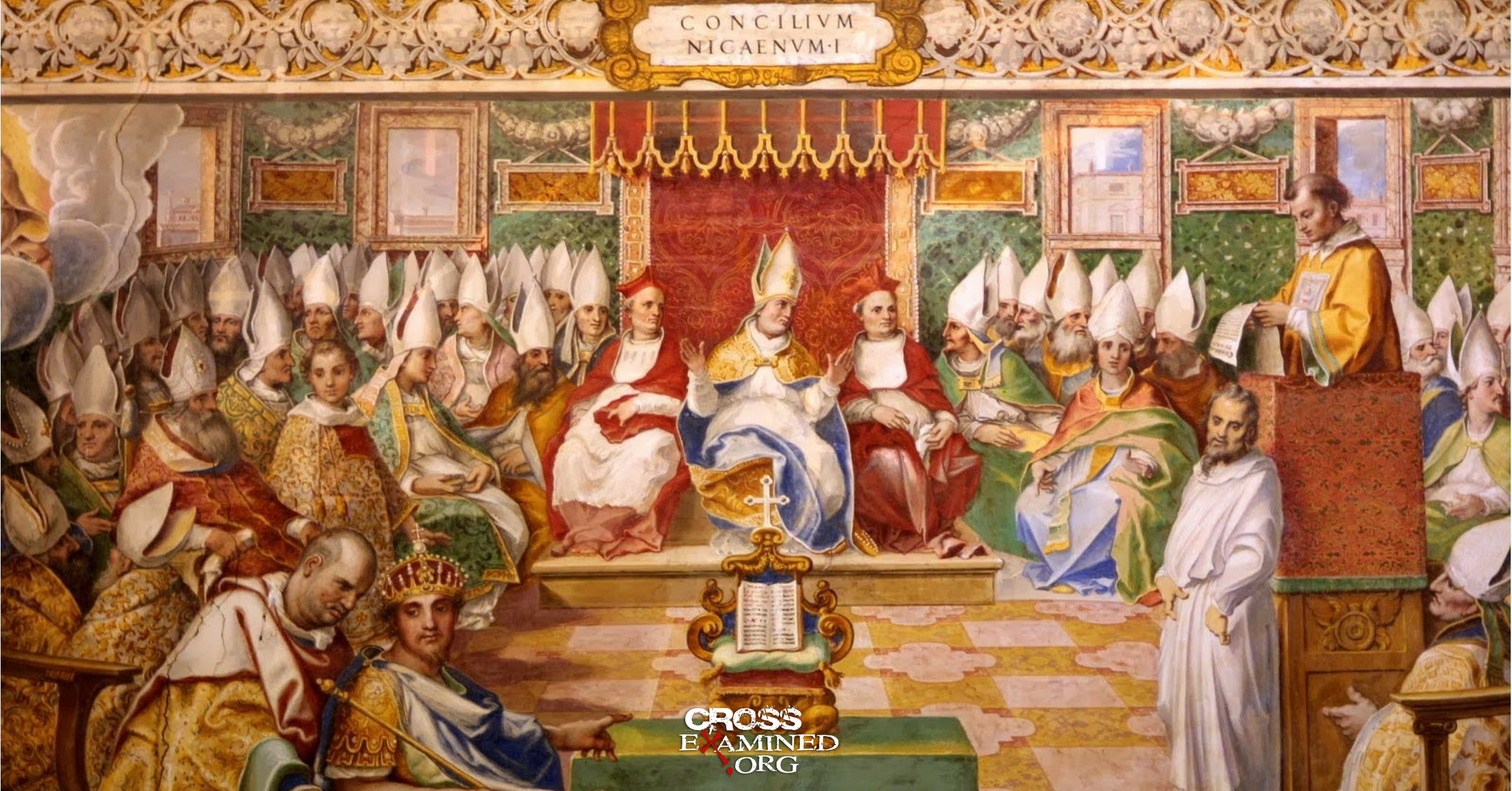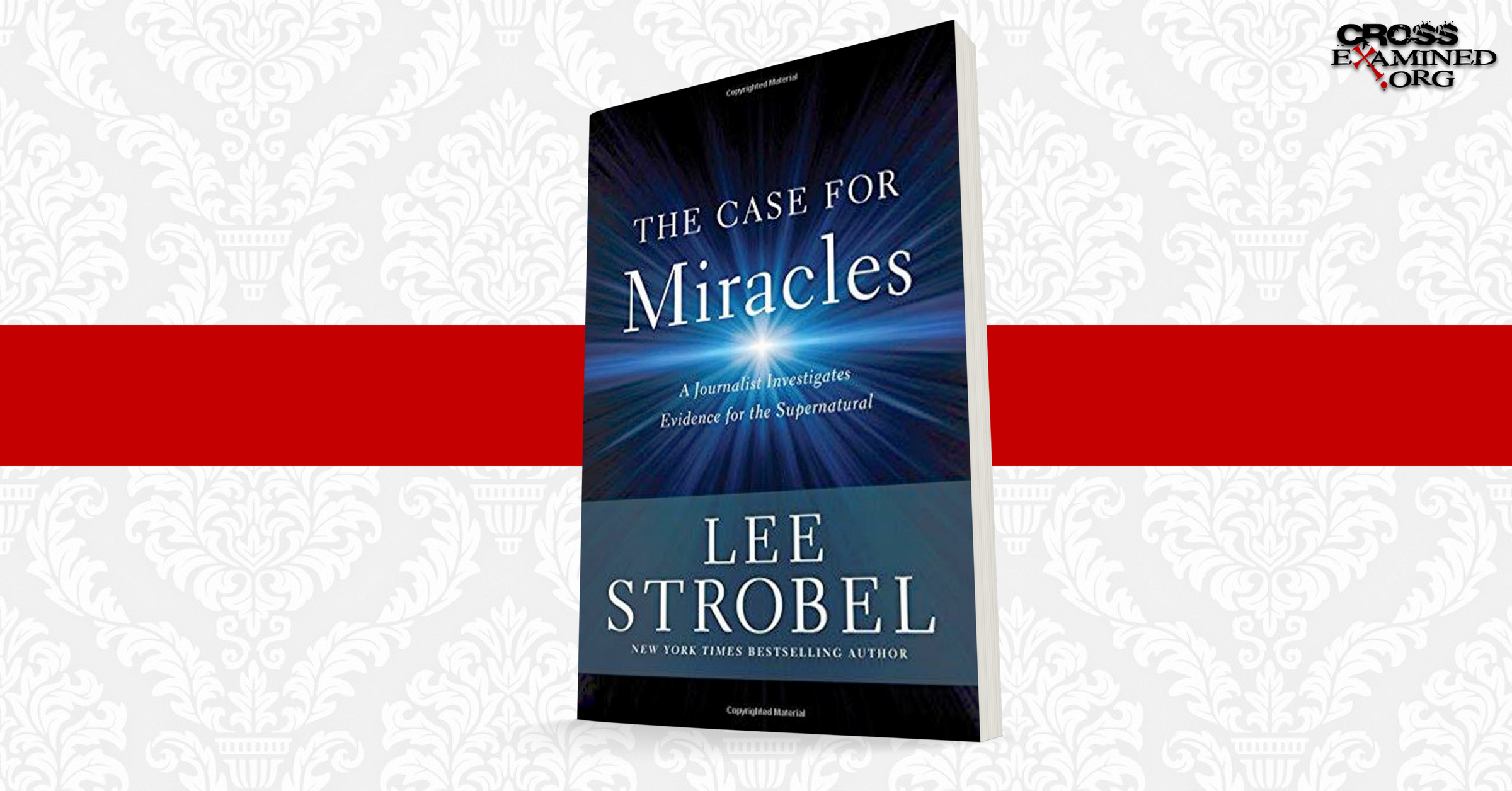by Ryan Leasure
I can still hear Al Michael’s voice in the background, “Do you believe in miracles?!?!” The United States victory over the heavily favored Russian hockey team in the 1980 Winter Olympics defied the odds. But as improbable as it was, should the “Miracle on Ice” really be dubbed a miracle? Unlikely? Yes. Coincidence? Perhaps. Miracle? No.
We often use the word miracle in vain to describe coincidental events. For example, we say things like “it’s a miracle we got to church on time,” or “it’s a miracle we found a parking spot!” The statements reflect hyperbole rather than a bona fide miracle. Even extremely improbable events like a hole in one or winning the lottery can’t properly classify as a miracle. Which leads us to the question, what classifies as a miracle? And perhaps an even more important question, do miracles still happen today?
Lee Strobel contributes another great work to his growing list of “Case For” books with his newest “The Case For Miracles.” I must confess, I’m a skeptic as far as Christians go. When I hear of supernatural occurrences, I doubt them by default. I like to think of myself as a level-headed Christian who doesn’t fall for fanciful claims. Yet, this “level-headed” Christian wept as he read The Case for Miracles.
BOOK SUMMARY
True to his journalistic form, Strobel interviews eight leading experts in their respective fields to get an answer to his question, “do miracles happen?” While several define the word miracle in different ways, Strobel prefers Richard Purtill’s definition which states, “A miracle is an event brought about by the power of God that is a temporary exception to the ordinary course of nature for the purpose of showing that God has acted in history” (27).
With the definition in place, Strobel asks the question, “do miracles happen?” To find out, he turns to the experts.
Michael Shermer, The Skeptic
Counterintuitively, Strobel’s first interview is with a prominent skeptic to hear his best case against miracles. A Christian in his younger days, Michael Shermer admits that his interest in science caused him to stray away from Christianity. He doesn’t shy away from asserting, “science became my belief system, and evolution my doctrine” (43). Even though Shermer had already transitioned away from Christianity, he recalls that the final straw occurred much later when he prayed to God — as a last-ditch effort — to heal his then college sweetheart who had become paralyzed. God didn’t answer, which confirmed Shermer’s suspicion that God must not exist.
Shermer admits that he can’t say for sure that God doesn’t exist; rather, he simply lacks belief in God. In that sense, God could be real if he performed an unequivocal miracle so blatantly obvious, that no other explanation could explain what happened. Shermer, therefore, chalks up highly unusual events to anomalies, e.g., cured cancer after prayer, immediate recovery to years-long struggle with M.S., etc. Oddly, he suggests that if someone’s limb grew back, then God would have his attention.
Circular Reasoning
As with most skeptics, Shermer subscribes to eighteenth-century philosopher David Hume’s argument against the possibility of miracles. Hume argued that “miracles were a violation of natural law, yet the natural law is always unalterably uniform. Therefore, no amount of evidence would convince him that God had intervened.” That is to say; miracles are impossible; therefore, a miracle didn’t happen — circular reasoning at its finest.
Due to Shermer’s methodological naturalism, he shrugged off Jesus’ miracles presented in the gospels as pure legend passed down decade after decade — a lot like the children’s telephone game. Furthermore, despite not having a good explanation for the initial cause of the universe or it’s precisely fine-tuned laws of physics, he predicts that natural causes will eventually offer good explanations. One could call this a “naturalism of the gaps” argument.
Craig Keener, The Miracle Reporter
Ben Witherington III declared that Craig Keener’s book Miracles is “perhaps the best book ever written on miracles in this or any age” (73), so it makes sense that Strobel interviewed him next. Keener didn’t set out to become an expert on miracles, but a two hundred page footnote in his Acts commentary led him to pursue the topic further.
Opposite Shermer, Keener believes Jesus performed real miracles. He bases this claim on the multiple, independent sources that report Jesus’ miracles within the lifetime of eye-witnesses. More than that, non-Christian sources such as the Greek philosopher Celsus and Jewish Talmud refer to Jesus as a miracle worker — although they attribute his acts to sorcery and magic. The first-century Jewish historian even states that Jesus “worked startling deeds.”
Keener believes the biblical miracles are historical. But do they still happen? Keener thinks so, though he suggests we should approach miracle claims with caution. He says we should ask, “Are there eyewitnesses? When we have multiple, independent, and reliable witnesses, this increases the probability that their testimony is accurate. Do they have a reputation for honesty? Do they have something to gain or lose? … Are there any medical records? … Are there alternative naturalistic explanations for what happened?” (92). Keener argues that if you, like Hume, give miracles zero chance of occurring, then you will never find a miracle. If you keep an open mind, however, and follow the evidence, you might be surprised by what you find.
The Deaf Healed
With that in mind, Keener provides several miracle claims that are difficult to explain naturalistically. In his own research, hundreds of cases have stunned him. He describes a nine-year-old British girl who was deaf. The child’s medical chart reports that she had “untreatable bilateral sensorineural deafness” (100). Family and friends prayed fervently that she would regain her hearing. Then one evening, her hearing suddenly returned to her. The following day she visited the audiologist who was dumbfounded by her recovery, so much so that he exclaimed, “I have never seen anything like it in my life.” The ENT surgeon used the word “inexplicable.” The well-credentialed physician Dr. R. F. R Gardner documented this case (101).
The Lame Walk
Barbara is another miracle story. Dr. Harold Adolph admitted, “Barbara was one of the most hopelessly ill patients I ever saw” (101). Barbara’s diagnosis was progressive multiple sclerosis. For sixteen years, her conditioned worsened — she suffered from pneumonia, a paralyzed diaphragm, lung malfunctioning, loss of urinary and bowels control, blindness, contracted joints and muscles, the need for a tracheostomy tube, and the inability to walk for several years.
Then one day, one of Barbara’s friends called into a radio station asking for prayer for Barbara. She received about 450 letters from people saying they were praying for her. Her aunt kindly read these letters to her along with two other friends. While she read these letters, suddenly Barbara heard a voice behind her — even though no one was there — that said to get up and walk. At that moment, she literally jumped out of her bed and removed her oxygen. She had received her sight again, her muscles were fully functional, and her body was completely healed. The next day, Barbara went to the doctor’s office for an examination. The x-rays showed that she was perfectly healthy. The doctor exclaimed, “This is medically impossible” (104).
The Dead Raised
Keener listed several others including a newly broken ankle that miraculously wasn’t broken the next day. Two separate x-rays confirm that one day it was broken, and the next day it wasn’t. Another example was a fifty-three-year-old man who flatlined for forty minutes, had turned black from lack of oxygen, and was clinically dead. But then a doctor prompted to pray for the man’s soul and give it one more shot, used the defibrillator to shock the man back to life. Instantly, the dead man came back to life with a normal heartbeat and vital signs with no signs of brain damage. There was even one instance of a man’s small intestines growing back in length after having them severed from a terrible accident — something similar to what Shermer said he needed to see to believe in miracles.
Michael Strauss, The Physicist
The late Stephen Hawking once admitted, “So long as the universe had a beginning, we could suppose it had a creator” (169). In Strobel’s next interview, he turns his attention to physicist Michael Strauss to find out if God created our universe. Of course, the Bible declares that God created the world out of nothing, but Strobel was interested in what science says. Strauss unequivocally states that science points toward a creator.
In 1929, Edwin Hubble discovered that the universe is expanding based on a “red shift” in the light coming from distant galaxies. Based on this discovery and others, three prominent cosmologists — Borde, Guth, and Vilenkin — concluded, “any universe that is expanding, on average, throughout its history, cannot be infinite in the past but must have a beginning” (171).
Cosmological Argument
Based on the evidence, Strauss suggests that the cosmological argument strongly points toward a creator. The argument proposes:
- Whatever begins to exist has a cause.
- The universe began to exist.
- Therefore, the universe has a cause.
Since the universe began to exist, which the scientific data suggests, the universe must have a cause — namely a creator.
Teleological Argument
Strauss turned his attention to the fine-tuning of the universe. Several physical laws are so incredibly precise, he asserts, that it’s unreasonable to think that they are that perfect by chance. For example, the expansion rate of our universe is fine-tuned to one part in a trillion trillion trillion trillion trillion (176). If this law was altered by a fraction, life as we know it could not exist.
Additionally, the ratio of the electromagnetic force to the gravitational force is fine-tuned to one part in ten thousand trillion trillion trillion. To understand how precise that is, astrophysicist Hugh Ross says that if we were to cover a billion North American continents with dimes that reached all the way to the moon, painted one of the dimes red, and chose that one red dime at random, that would be the equivalence of one in ten thousand trillion trillion trillion.
Strauss’ conclusion leads to an obvious conclusion. If God created the world out of nothing with physical laws, he could easily overpower those laws to perform miracles.
J. Warner Wallace, The Detective
- Warner Wallace knows how to evaluate evidence. He’s a cold-case detective who has used those same skills to evaluate evidence for Jesus’ miracles. He makes the case that not only are the gospels eyewitness accounts, they were written within 25-30 years of Jesus’ life. When you consider that the most credible biography for Alexander the Great comes 400 years after his life, 25-30 years doesn’t sound so bad.
Moreover, the disciples would have remembered Jesus’ teachings and miracles quite well even after a few decades. The reason is that we tend to remember important events, especially if we are personally involved in them. Additionally, the disciples taught these stories about Jesus hundreds of times so they would have cemented in their brains. If only one eyewitness existed, you could argue that their story could have changed over time. But because dozens of people knew the facts, when someone began to teach something wrong, others would have immediately corrected them. For these reasons, we can be confident that we have an accurate testimony of Jesus’s miracles.
Passion Narrative
When it comes to Jesus’ crucifixion, almost nobody disagrees that it happened — skeptics included. While some have tried to say that Jesus didn’t really die on the cross — he merely passed out, we have no historical record of anyone ever surviving a crucifixion. Furthermore, the “crucifixion was humiliating — it’s not something the early church would have invented” (204).
Skeptics have doubted his burial as well. But Jewish archaeologist Jodi Magness suggests otherwise. She affirms, “the Gospel accounts describing Jesus’ removal from the cross and burial are consistent with the archaeological evidence and with Jewish law” (205).
Not only is there substantial evidence for his crucifixion and burial, there is strong evidence for Jesus’ postmortem appearances. The disciples were so convinced of his resurrection that they were willing to die for their belief. People don’t typically die for anything they know to be false. This is different from a modern-day Islamic extremist who kills themselves in the name of Allah. They die on the basis of faith alone. The disciples knew for certain and yet they were still willing to die. They would have known if it was false. It’s hard to imagine that they wouldn’t have caved under the threat of death if they were making it up.
MY CONCLUDING THOUGHTS
While I only mentioned four interviews, Strobel interacted with eight experts in all. Hopefully, my description of the four gives you a feel for the entire book.
Miracles Have Happened
I read this book in less than a day, and it’s not because I’m an exceptional reader. I couldn’t put it down. For someone who is generally skeptical of modern miracle claims, I find myself second guessing that position. As a Christian, I have long believed that the miracles contained in the Bible are historical. For me, it makes sense to think that God works miracles to authenticate his revelation. Miracles authenticated Moses, as he gave God’s Law. Likewise, miracles validated the era of the prophets as they authoritatively proclaimed God’s word. And miracles confirmed the life and ministry of Jesus and his apostles.
I appreciate that Strobel interviewed the physicist Michael Strauss. At first glance, this might seem like an odd interview in a book on miracles. After all, Strauss is a scientist who deals with the natural world. Miracles, it would seem, fall outside his expertise. His interview, however, gives strong evidence for the possibility of miracles. After all, if God can create the world out of nothing, then healing somebody or even raising the dead would not be difficult for him. If you can establish that God created this universe, then miracles are definitely possible.
Miracles Still Happen
Of all the interviews, Craig Keener’s was my favorite. When I first flipped through the table of contents, I knew I would enjoy his the best, and I was right. After all, Keener’s work on miracles is considered by many to be the definitive work on the topic. As I read through his interview, I was especially enthralled with the modern-day miracle claims because this was the issue I was most interested in. As I mentioned earlier, I already believed the biblical miracles; it was the modern miracle claims that were a stumbling block for me.
I must confess that these stories were fascinating and convincing. And these weren’t ordinary claims with no medical evidence or credible eyewitness testimony to back them up either. These accounts captivated my full attention and had me scratching my head repeatedly. I kept asking myself, how could these things have happened? How could someone’s intestines grow back? Intestines aren’t like fingernails. They don’t just grow back like that.
My one complaint was that this section was too short. I know Strobel devoted a significant part of his book to Keener, but I found myself wanting more of the modern miracle stories.
Highly Recommend
Whether you are a skeptic who doesn’t believe in the possibility of miracles or a lifelong Christian who believes every miracle claim, I highly recommend this book. As a Christian who is skeptical of modern miracle claims, The Case for Miracles challenged my faith.
Original Blog Source: http://bit.ly/2LitGo2






